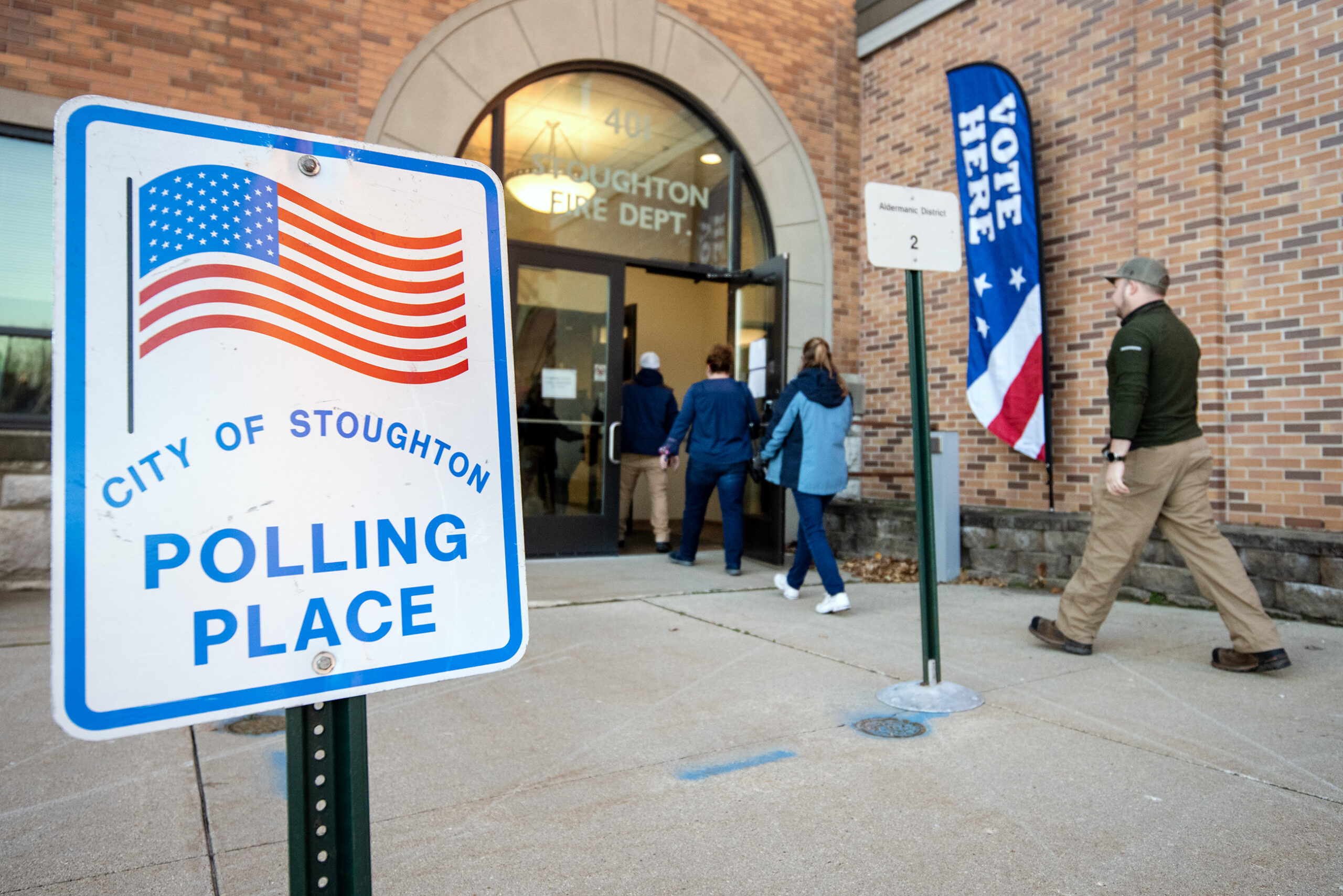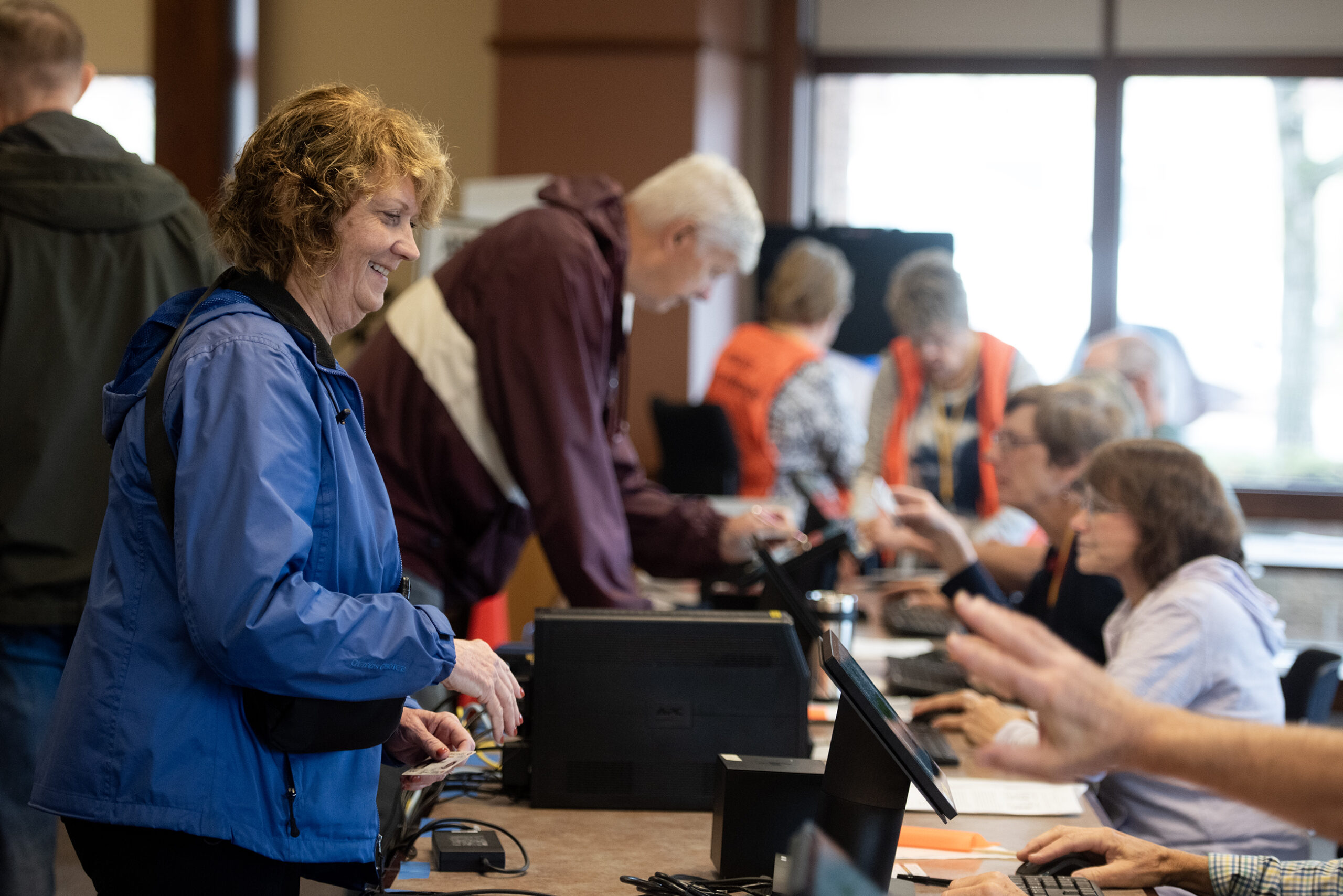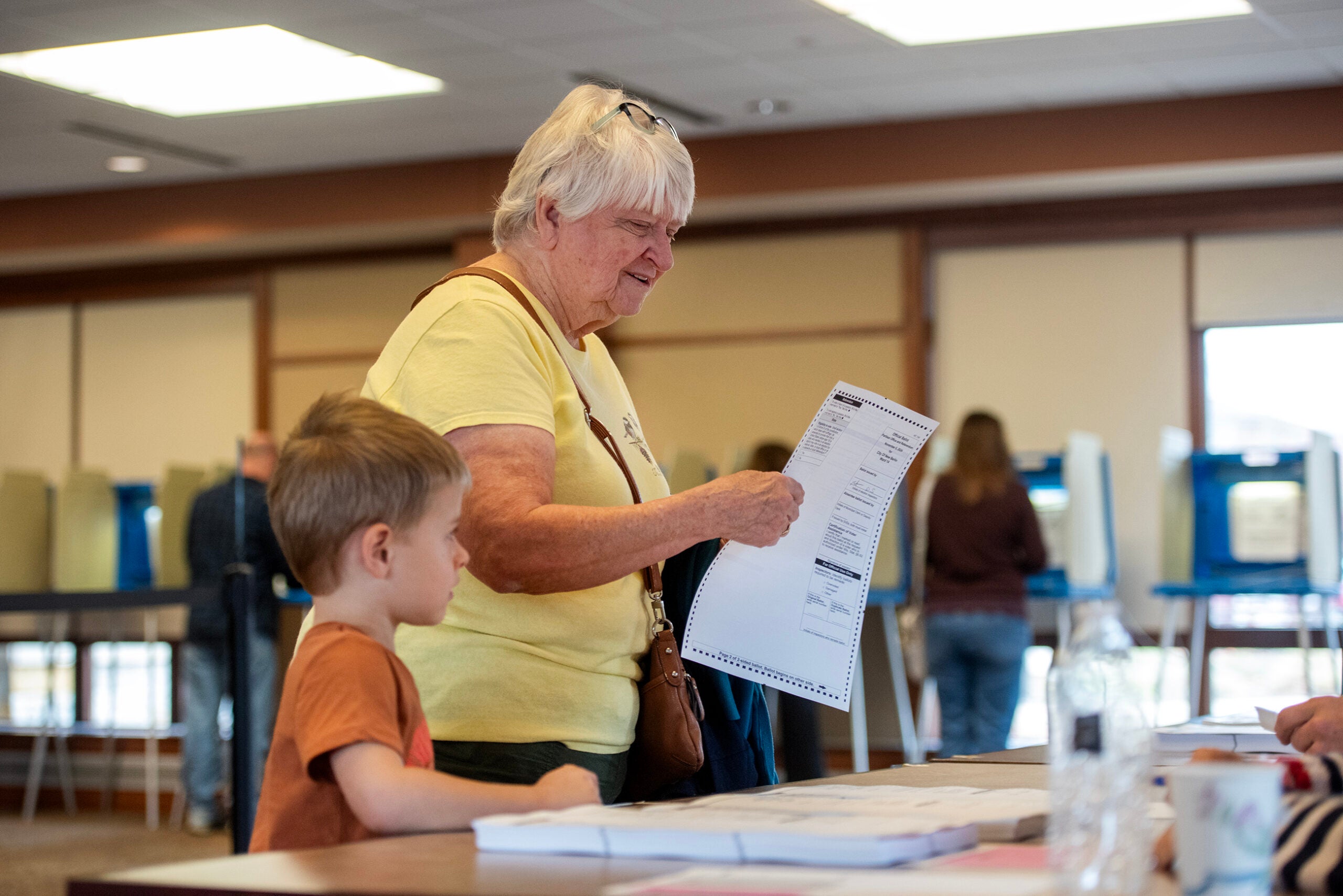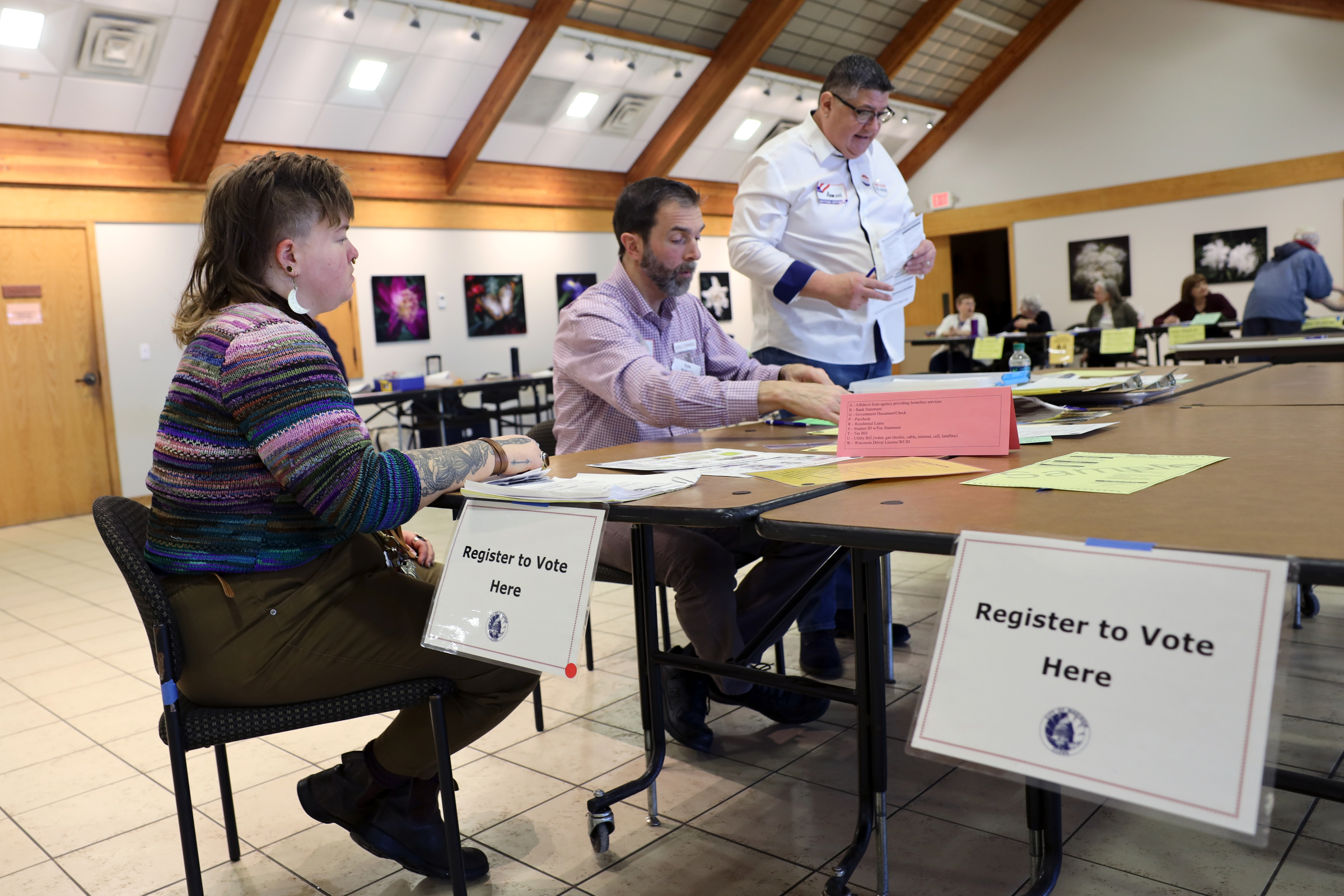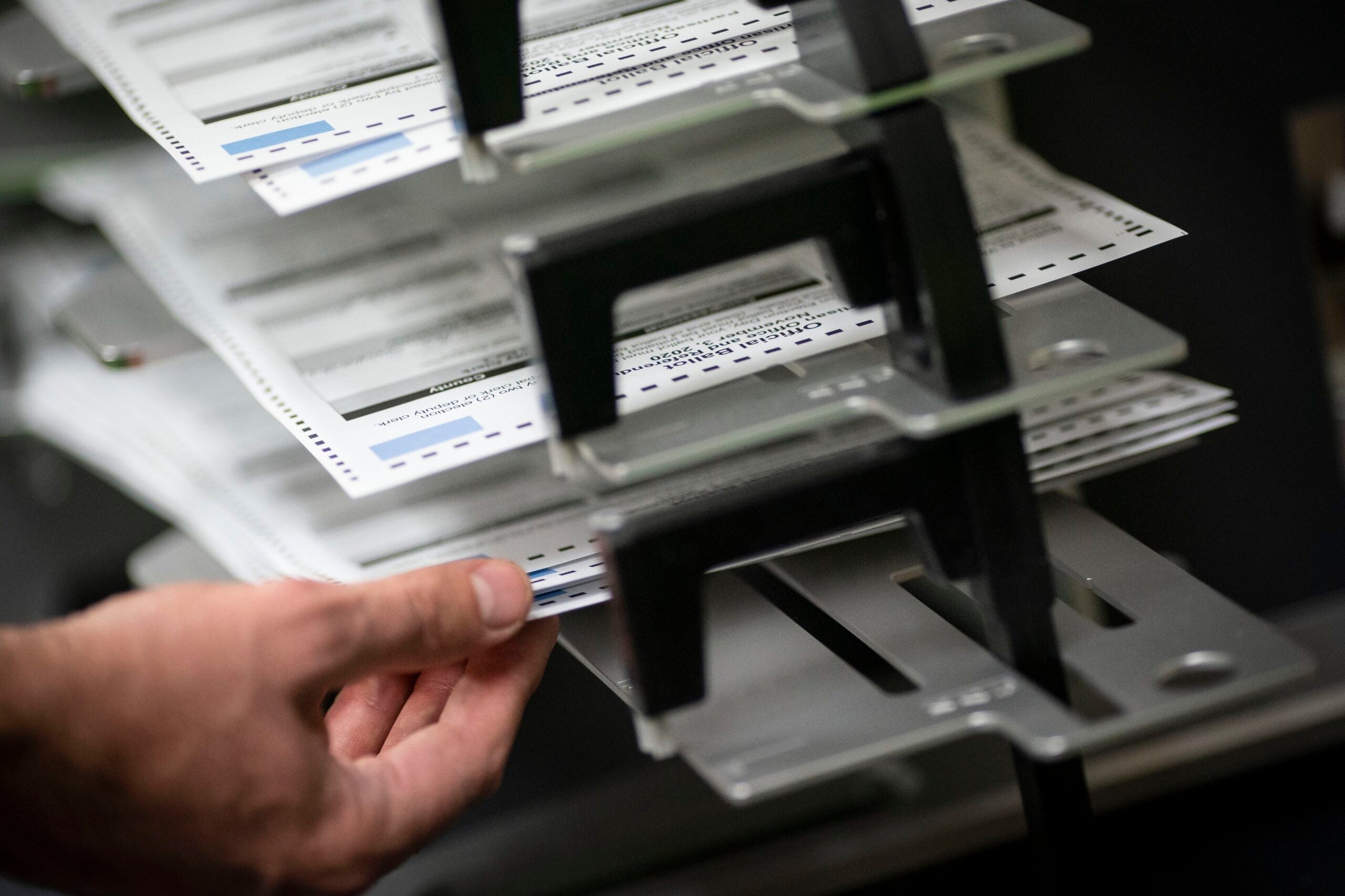Former Lt. Gov. Mandela Barnes and former U.S. Rep. Scott Klug discussed problems and solutions around election distrust during a panel hosted by the Rotary Club of Madison on Wednesday.
The former is a Democrat, the latter a Republican. Both are part of the Democracy Defense Project, a bipartisan initiative started in June by former elected officials in swing states.
According to the project’s website, it seeks to “publicly defend those who have sworn to uphold the rule of law” as well as be “an active voice against any individual or organization that would look to undermine lawful election processes and outcomes.”
Stay informed on the latest news
Sign up for WPR’s email newsletter.
The project’s Wisconsin team consists of Barnes, Klug, former Republican Attorney General JB Van Hollen and former Wisconsin Democratic State Party Chair Mike Tate.
Speakers discuss new policy ideas
Barnes and Klug discussed several potential policies that could improve Wisconsinites’ faith in election results.
Klug said Nebraska was currently the only state that allows counties to summon people for poll worker duty, much like all states do for juries.
“When you’re inside, much like being inside the jury room, you really understand how the system works,” Klug said.
According to USA Today, Nebraska’s Douglas County, which includes Omaha, relies on summoned poll workers for about 45 percent of its 3,000-strong election day volunteer force.
In response to a question about the Dane County Clerk’s initiative to scan and publish all ballots online, Barnes said that “most people, just knowing that those ballots are available, would have a certain level of comfort.”
Both agreed with an audience member who proposed the Green Bay Packers publish PSAs on “voting, voting processes and safeguards.”
“No stone unturned here,” Barnes said, as Klug added, “We’ll take a look.”
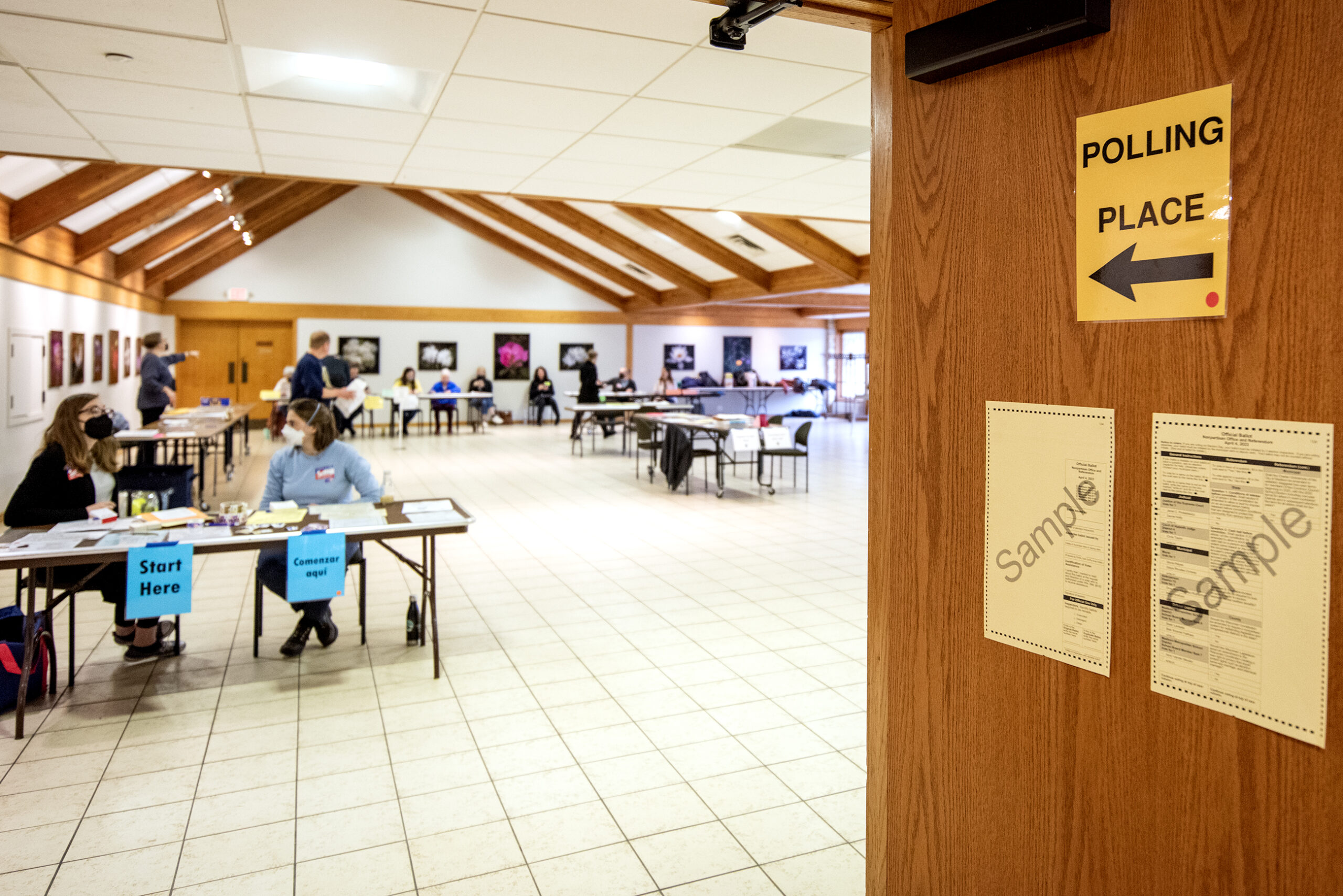
Trust in elections still a difficult task
Despite the ideas both speakers floated, Barnes and Klug acknowledged the challenges facing election administration in Wisconsin today.
Referencing the increasing threats facing election workers, Barnes said that “it is a very scary time for folks who work really hard to make sure elections are administered properly.”
“My mother-in-law was a loyal poll worker in Merrill, Wisconsin, which is about 15 miles north of Wausau. She did almost every election,” Klug said.
Klug referenced the high turnover among election administrators nationwide.
“They’ve quit because the sort of harassment you think of in the abstract is very real for them,” he said.
He also said the financial hardships of local newspapers may worsen polarization, citing research by political scientist Joshua P. Darr.
“When (local newspapers) disappeared, all people got was national news on the cable systems, and partisanship continued to rise, and ticket splitting diminished significantly,” Klug said.
Barnes, Klug strike positive note
During the talk, Klug referenced a survey commissioned by the Democracy Defense Project, which found Wisconsinites to be more confident than the national average in votes being accurately cast and counted this fall.
It found that only 42 percent of voters nationally feel “very confident” the election will be conducted accurately, while Wisconsin came in at 48 percent.
Barnes said the power to restore faith in elections ultimately rests with people at the grassroots level.
“There may be a person who’s a little curious, or a person who feels that something is a little off (about elections),” Barnes said. “We can talk to those people and just listen.”
Barnes said he believes that, in most of these cases, there will already be existing policies addressing the concerns people have about election integrity.
Wisconsin Public Radio, © Copyright 2025, Board of Regents of the University of Wisconsin System and Wisconsin Educational Communications Board.
